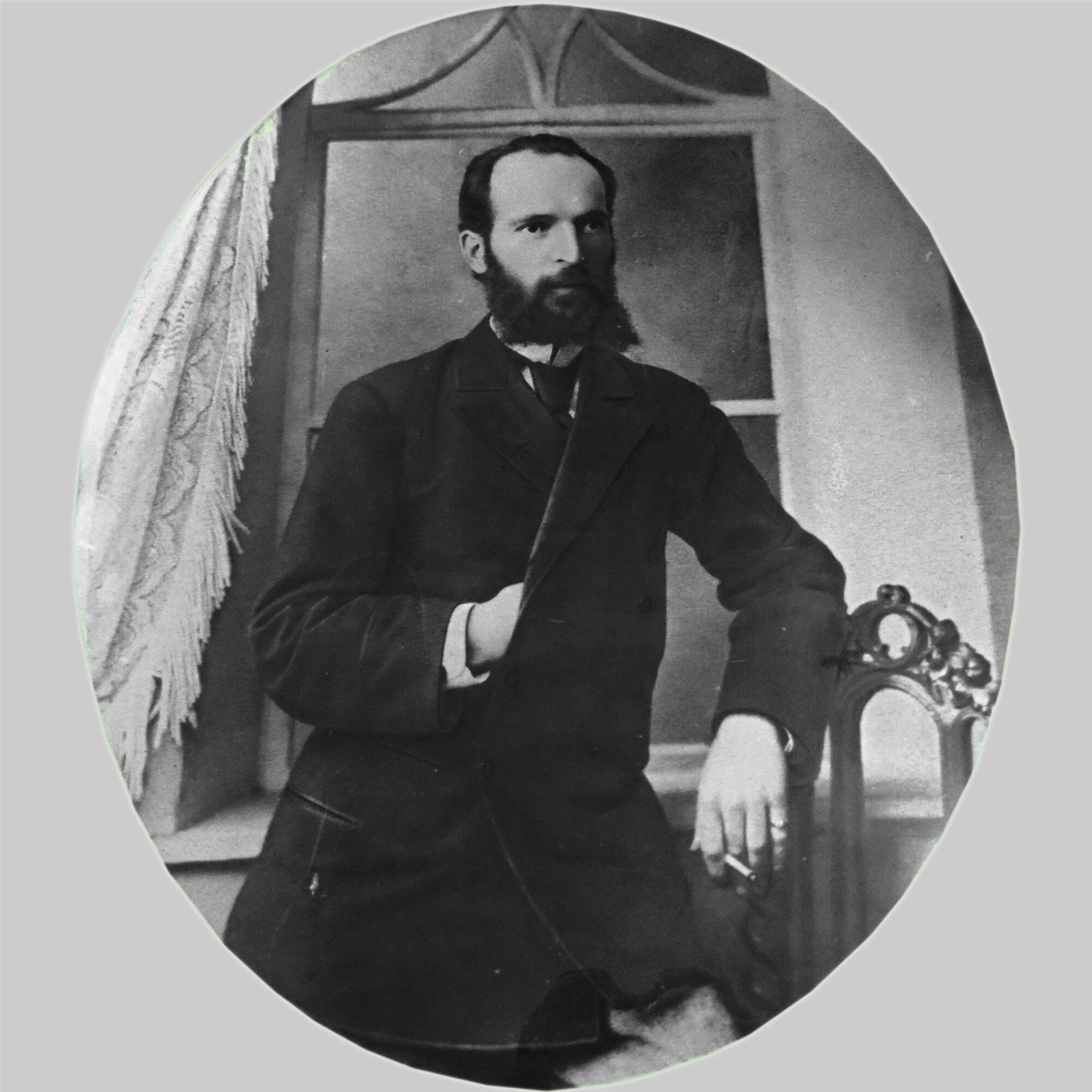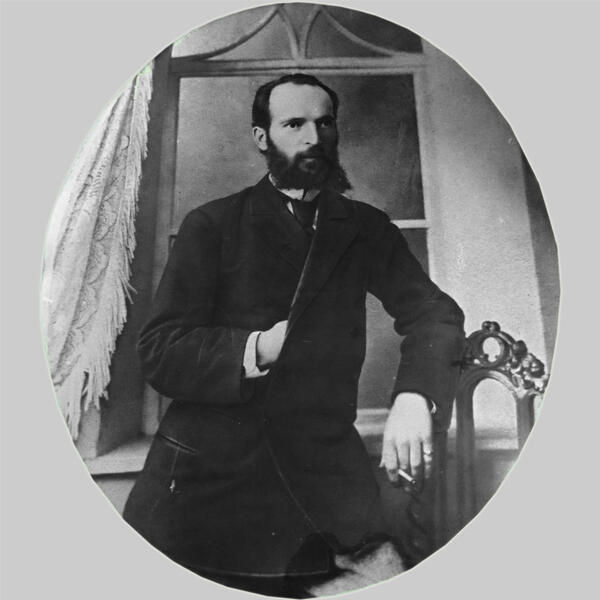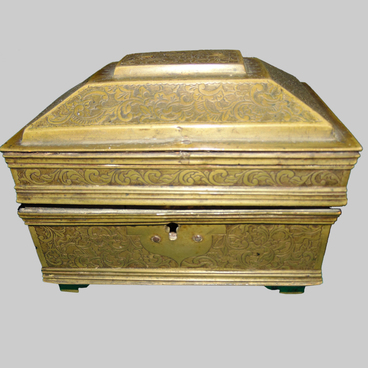This is a copy of a photograph of Sergey Grigorievich Aksakov, son of Samara governor Grigory Sergeevich Aksakov and grandson of the famous Russian writer Sergey Timofeevich Aksakov. He was born on August 28, 1861 in Ufa, and was baptized in the local Grado-Ufa Trinity Church. Like his father, Sergey served in the Ministry of Internal Affairs, having started working in 1887 in one of its most important subdivisions - Land Department. Later he was transferred to Warsaw Province, where he was appointed Commissioner for Peasant Affairs of Wroclaw County. Then he returned to Russia and became the land sheriff of Buzuluk district in Samara province, where he owned the village of Strakhovo.
Sergey Aksakov got married to Serafima Ivanovna Sveshnikova on April 19, 1884 in St. Petersburg. She was the daughter of 1st Rank Captain and later Rear Admiral Ivan Ivanovich Sveshnikov. Together, they had five children: sons Nikolai, Sergei and Konstantin and daughters Maria and Elizaveta; Nikolai and Elizaveta both passed away in early childhood. It was Sergey Grigorievich who inherited the mansion in Nadezhdino, where the museum of the Aksakov family is now built. He hardly ever lived in there.
According to family members, Sergey suffered from epilepsy and was a brilliant violin player. His musical abilities were likely inherited by his son, Sergey Sergeevich, born in 1891. Sergey was the third child in the family. He studied at the Moscow Conservatory and by 1911 had already mastered the entire program of higher music education. Nevertheless, at his father’s insistence, he continued his education at the Imperial Lyceum in St. Petersburg, where nearly every Aksakov had studied in the past.
Later in his life, Sergey Aksakov joined civil service, leaving it soon after to pursue military education. He also performed at concerts in Moscow, Minsk and Kiev, and his works were printed in the musical publishing houses of St. Petersburg and Kiev. In 1918, he and his family moved to Harbin, where he was soon invited to work as a piano class professor at the Shanghai State Conservatory. In 1950s he returned to the USSR. By the end of his life, his music had gained a wide acclaim. In 1961 the Belarusian branch of the Union of Composers of the USSR celebrated his 70th anniversary, while the composer himself took part in radio programs and his music was regularly performed at concerts throughout the country.
Sergey Aksakov got married to Serafima Ivanovna Sveshnikova on April 19, 1884 in St. Petersburg. She was the daughter of 1st Rank Captain and later Rear Admiral Ivan Ivanovich Sveshnikov. Together, they had five children: sons Nikolai, Sergei and Konstantin and daughters Maria and Elizaveta; Nikolai and Elizaveta both passed away in early childhood. It was Sergey Grigorievich who inherited the mansion in Nadezhdino, where the museum of the Aksakov family is now built. He hardly ever lived in there.
According to family members, Sergey suffered from epilepsy and was a brilliant violin player. His musical abilities were likely inherited by his son, Sergey Sergeevich, born in 1891. Sergey was the third child in the family. He studied at the Moscow Conservatory and by 1911 had already mastered the entire program of higher music education. Nevertheless, at his father’s insistence, he continued his education at the Imperial Lyceum in St. Petersburg, where nearly every Aksakov had studied in the past.
Later in his life, Sergey Aksakov joined civil service, leaving it soon after to pursue military education. He also performed at concerts in Moscow, Minsk and Kiev, and his works were printed in the musical publishing houses of St. Petersburg and Kiev. In 1918, he and his family moved to Harbin, where he was soon invited to work as a piano class professor at the Shanghai State Conservatory. In 1950s he returned to the USSR. By the end of his life, his music had gained a wide acclaim. In 1961 the Belarusian branch of the Union of Composers of the USSR celebrated his 70th anniversary, while the composer himself took part in radio programs and his music was regularly performed at concerts throughout the country.



